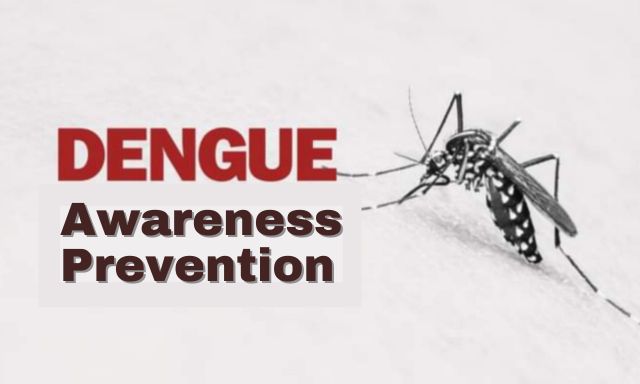Dengue Awareness and Prevention

Before traveling to Bali, it’s important to educate yourself about dengue fever awareness and prevention. Taking precautions to prevent mosquito bites and knowing the symptoms can make your trip safer and more informed.
![]() DISCLAIMER: This article is for informational purposes only and should not be considered medical advice. For personalized healthcare recommendations or concerns regarding dengue fever or any medical condition, please consult with a qualified healthcare professional.
DISCLAIMER: This article is for informational purposes only and should not be considered medical advice. For personalized healthcare recommendations or concerns regarding dengue fever or any medical condition, please consult with a qualified healthcare professional.
What’s is Dengue Fever?
Dengue fever is caused by the dengue virus, which is transmitted to humans primarily through the bite of the Aedes mosquito, particularly Aedes aegypti. These mosquitoes are most active during the daytime, especially around dawn and dusk, making prevention challenging.
Symptoms and Manifestations
The symptoms of dengue fever typically appear within 4-10 days after being bitten by an infected mosquito. Common signs include sudden onset of high fever, severe headache (often behind the eyes), joint and muscle pain, rash, and mild bleeding such as nosebleeds or gum bleeding. In severe cases, dengue can progress to dengue hemorrhagic fever or dengue shock syndrome, which can be life-threatening without prompt medical intervention.
Impact in Bali
Bali experiences periodic outbreaks of dengue fever, with cases peaking during the rainy season (usually from November to March). Factors contributing to the spread of dengue include urbanization, increased travel, and environmental factors that favor mosquito breeding sites, such as stagnant water in containers like flowerpots, tires, and trash.
Prevention Measures
Preventing dengue fever primarily involves reducing mosquito exposure and breeding sites. Key preventive measures include:
Use of Mosquito Repellent: Applying mosquito repellent containing DEET, picaridin, or oil of lemon eucalyptus. Repellents can be purchased at pharmacies, supermarkets, and convenience stores across Bali.
Wearing Protective Clothing: Long sleeves, pants, and socks can reduce exposed skin and minimize mosquito bites. It is advisable to bring repellent when taking day trips, as mosquitoes can be found in various outdoor settings.
Mosquito Control: Ensuring screens on windows and doors, using mosquito nets while sleeping, and employing indoor insecticide sprays can reduce indoor mosquito populations.
Aromatherapy: Using essential oils such as citronella, lavender, or eucalyptus in a diffuser or as a room spray can help repel mosquitoes indoors. These scents are known to deter mosquitoes and create a more pleasant environment.
Eliminating Breeding Sites: Regularly emptying and cleaning containers that hold standing water, such as flowerpots, bird baths, and buckets, to prevent mosquitoes from breeding.
Healthcare and Treatment
If symptoms of dengue fever develop, seeking medical attention promptly is crucial. While there is no specific antiviral treatment for dengue, supportive care focused on managing symptoms is essential. This includes adequate hydration, rest, and in severe cases, hospitalization for intravenous fluids and monitoring.
Local Beliefs and Remedies
Some locals in Bali believe that drinking guava juice can help increase platelet count when bitten by mosquitoes and experiencing dengue fever symptoms. However, there is limited scientific evidence to support this claim, and medical consultation is recommended for proper treatment.
Here are some hospitals in Bali ready to assist with dengue cases, along with their contact numbers:
 BIMC Nusa Dua: Jl. Nusa Dua Blok D No. 10, Nusa Dua. Phone: +62 (361) 771000. Website: https://bimcbali.com/bimc-siloam-nusa-dua (This website covers both BIMC locations in Bali)
BIMC Nusa Dua: Jl. Nusa Dua Blok D No. 10, Nusa Dua. Phone: +62 (361) 771000. Website: https://bimcbali.com/bimc-siloam-nusa-dua (This website covers both BIMC locations in Bali) Siloam Hospital: Jl. Sunset Road No. 818, Kuta. Phone: +62 (361) 779900. Website: https://www.siloamhospitals.com/…/siloam-hospitals…
Siloam Hospital: Jl. Sunset Road No. 818, Kuta. Phone: +62 (361) 779900. Website: https://www.siloamhospitals.com/…/siloam-hospitals… Kasih Ibu Hospital: Jl. Teuku Umar No. 120, Denpasar. Phone: +62 (361) 223036. Website: https://kih.co.id/
Kasih Ibu Hospital: Jl. Teuku Umar No. 120, Denpasar. Phone: +62 (361) 223036. Website: https://kih.co.id/ Prima Medika Hospital: Jl. Raya Sesetan No. 10, Denpasar. Phone: +62 (361) 232434.
Prima Medika Hospital: Jl. Raya Sesetan No. 10, Denpasar. Phone: +62 (361) 232434. RSUP Sanglah: Jl. Diponegoro, Denpasar. Phone: +62 (361) 2217911.
RSUP Sanglah: Jl. Diponegoro, Denpasar. Phone: +62 (361) 2217911. Bros Hospital: Jl. Tantular No. 6, Renon, Denpasar. Phone: +62 (361) 247499.
Bros Hospital: Jl. Tantular No. 6, Renon, Denpasar. Phone: +62 (361) 247499. Surya Husada Hospital: Jl. P. Serangan 1, Denpasar. Phone: +62 (361) 246565.
Surya Husada Hospital: Jl. P. Serangan 1, Denpasar. Phone: +62 (361) 246565.
Community and Government Efforts
Efforts to control dengue fever in Bali involve coordinated actions by local communities, health authorities, and government agencies. These efforts include public awareness campaigns, mosquito control programs, and community engagement in eliminating breeding sites.
Dengue fever remains a significant health challenge in Bali, necessitating continuous efforts in prevention, early detection, and management. Awareness of the symptoms, proactive mosquito control measures, and community involvement are crucial in reducing the impact of dengue outbreaks on the island. By working together, residents and visitors can contribute to creating a safer and healthier environment in Bali.
Related Post: Less Crowded Places to Visit in Bali


